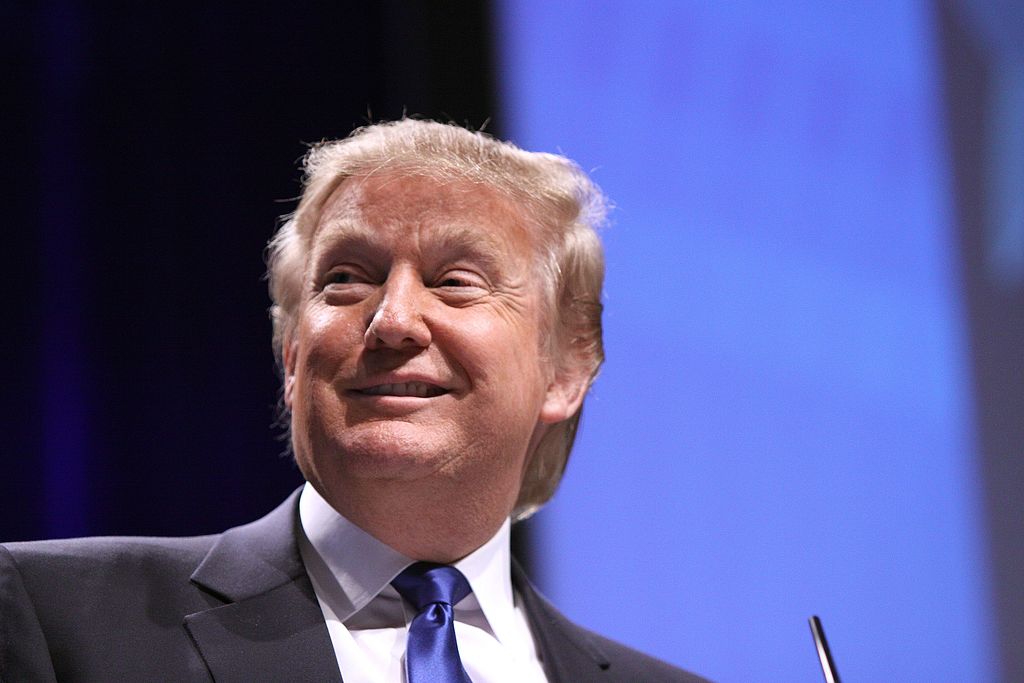Amid escalating concerns over water scarcity in the United States, former President Donald Trump has rolled out a comprehensive strategy to address water shortages in 2025. The initiative, unveiled during a press conference in Arizona, focuses on infrastructure upgrades, stricter conservation policies, and a contentious plan to divert water from the Mississippi River to arid Western states. While Trump’s proposal has garnered support from some, it has also ignited debates over feasibility, environmental impact, and cost.
Infrastructure Overhaul: Trump’s Water Solution
Central to Trump’s plan is a $200 billion infrastructure investment aimed at modernizing the nation’s aging water systems. This includes repairing dams, upgrading pipelines, and constructing new reservoirs to increase water storage capacity. Trump emphasized the urgency of addressing the crisis, stating, “Water shortages threaten our farms, our cities, and our way of life. We cannot afford inaction.”
In addition to infrastructure, the former president proposed a series of water conservation measures. These include incentives for farmers to adopt more efficient irrigation systems and mandates for urban areas to reduce water waste by implementing advanced recycling technologies. Critics argue that such measures, while necessary, may not be sufficient to address the scale of the crisis.
Diverting the Mississippi: A Controversial Proposal
The most contentious aspect of Trump’s plan is his proposal to divert water from the Mississippi River to drought-stricken areas in the West. The project, estimated to cost over $50 billion, would involve constructing a massive pipeline network to transport water across multiple states. Proponents argue the initiative could provide a lifeline to farmers and communities struggling with extreme drought conditions.
However, environmental groups and some state officials have raised concerns about the ecological impact of such a diversion. They warn that altering the river’s flow could devastate ecosystems, harm wildlife, and exacerbate flooding risks in the Midwest.
Mixed Reactions From Social Media
Trump’s water shortage strategy has ignited heated discussions online, with supporters and detractors weighing in on social media.
- @EcoActivist88: “Diverting the Mississippi River? This could spell disaster for ecosystems. Trump’s ideas are reckless as always.”
- @FarmersFirstNow: “Finally, someone addressing the water crisis head-on. This plan could save farms and livelihoods!”
- @CityConserver: “Water recycling and conservation are great, but this pipeline idea is a logistical nightmare.”
- @WestCoastThrive: “Desperate times call for bold solutions. Trump’s plan may be crazy, but at least it’s something.”
- @RiverDefender: “Mississippi diversion is an environmental catastrophe waiting to happen. We need smarter solutions, not knee-jerk reactions.”
- @InnovationNow2025: “Trump is thinking big. Water shortages are a national crisis—we need to act, even if it’s controversial.”



 U.S. Deploys Tomahawks, B-2 Bombers, F-35 Jets and AI Tools in Operation Epic Fury Against Iran
U.S. Deploys Tomahawks, B-2 Bombers, F-35 Jets and AI Tools in Operation Epic Fury Against Iran  Trump Says U.S. Attacks on Iran Will Continue, Warns of More American Casualties
Trump Says U.S. Attacks on Iran Will Continue, Warns of More American Casualties  Trump Warns Iran as Gulf Conflict Disrupts Oil Markets and Global Trade
Trump Warns Iran as Gulf Conflict Disrupts Oil Markets and Global Trade  U.S.-Israel Strike on Iran Escalates Middle East Conflict, Trump Claims Khamenei Killed
U.S.-Israel Strike on Iran Escalates Middle East Conflict, Trump Claims Khamenei Killed  Trump Launches Operation Epic Fury: U.S. Strikes on Iran Mark High-Risk Shift in Middle East
Trump Launches Operation Epic Fury: U.S. Strikes on Iran Mark High-Risk Shift in Middle East  Netanyahu Suggests Iran’s Supreme Leader Khamenei May Have Been Killed in Israeli-U.S. Strikes
Netanyahu Suggests Iran’s Supreme Leader Khamenei May Have Been Killed in Israeli-U.S. Strikes  Pentagon to Halt Ivy League Programs for U.S. Military Officers Starting 2026
Pentagon to Halt Ivy League Programs for U.S. Military Officers Starting 2026  Iran Supreme Leader Ayatollah Ali Khamenei Killed in Israeli, U.S. Strikes: Reuters
Iran Supreme Leader Ayatollah Ali Khamenei Killed in Israeli, U.S. Strikes: Reuters  Pakistan-Afghanistan Tensions Escalate as Taliban Offer Talks After Airstrikes
Pakistan-Afghanistan Tensions Escalate as Taliban Offer Talks After Airstrikes  Trump Orders Federal Agencies to Halt Use of Anthropic AI Technology
Trump Orders Federal Agencies to Halt Use of Anthropic AI Technology  Israel Launches Fresh Strikes on Iran After Death of Supreme Leader Ayatollah Khamenei
Israel Launches Fresh Strikes on Iran After Death of Supreme Leader Ayatollah Khamenei  Trump Says U.S. Combat Operations in Iran Will Continue Until Objectives Are Met
Trump Says U.S. Combat Operations in Iran Will Continue Until Objectives Are Met  Pentagon Leaders Monitor U.S. Iran Operation from Mar-a-Lago
Pentagon Leaders Monitor U.S. Iran Operation from Mar-a-Lago  Russia Signals Openness to U.S. Security Guarantees for Ukraine at Geneva Peace Talks
Russia Signals Openness to U.S. Security Guarantees for Ukraine at Geneva Peace Talks  Germany and China Reaffirm Open Trade and Strategic Partnership in Landmark Beijing Visit
Germany and China Reaffirm Open Trade and Strategic Partnership in Landmark Beijing Visit  Macron Urges Emergency UN Security Council Meeting as US-Israel Strikes on Iran Escalate Middle East Tensions
Macron Urges Emergency UN Security Council Meeting as US-Israel Strikes on Iran Escalate Middle East Tensions  Argentina Senate Approves Bill to Lower Age of Criminal Responsibility to 14
Argentina Senate Approves Bill to Lower Age of Criminal Responsibility to 14 
































